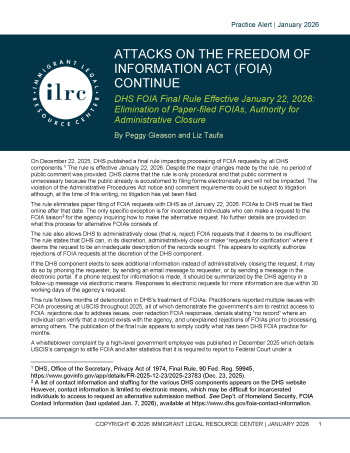
On December 22, 2025, DHS published a final rule impacting processing of FOIA requests by all DHS components. The rule is effective January 22, 2026. Despite the major changes made by the rule, no period of public comment was provided. The rule eliminates paper filing of FOIA requests with DHS as of January 22, 2026. FOIAs to DHS must be filed online after that date. The rule also states that DHS can, in its discretion, administratively close or make “requests for clarification” where it deems the request to be an inadequate description of the records sought.
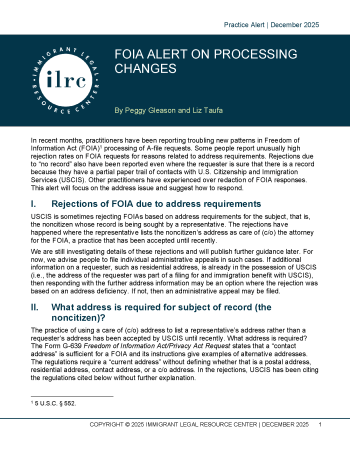
In recent months, practitioners have been reporting troubling new patterns in FOIA processing of A-file requests. Some people report unusually high rejection rates on Freedom of Information Act (FOIA) requests for reasons related to address requirements. Rejections due to “no record” also have been reported even where the requester is sure that there is a record because they have a partial paper trail of contacts with USCIS. Frequent over redaction of FOIA responses also has been reported. This alert discusses the address issue and suggests how to respond.
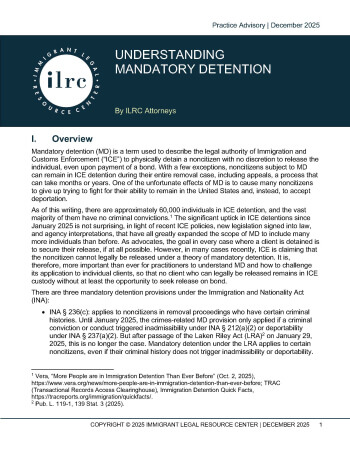
This advisory explains each of the three statutory grounds for mandatory detention, and defenses and strategies that advocates can use to challenge the designation. It discusses the Laken Riley Act of 2025, the BIA’s decisions in Matter of Q. Li and Matter of Yajure Hurtado, and the current state of national litigation challenging ICE’s expansive use of mandatory detention.
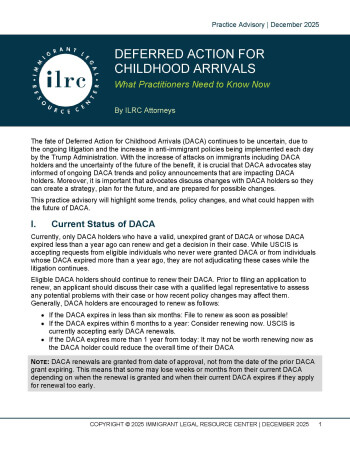
This practice advisory will highlight some trends, policy changes, and what could happen with the future of DACA.
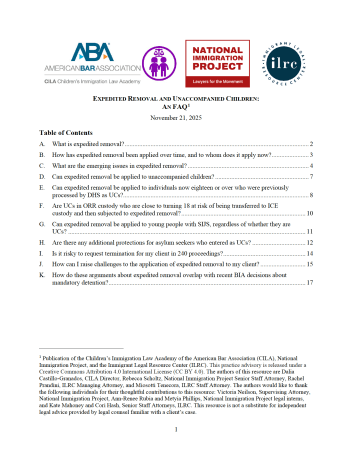
This resource – created with our partners at the Children’s Immigration Law Academy and National Immigration Project – answers common questions about expedited removal and its application to children and offers arguments against its application to young people who were processed as UCs and young people with approved special immigrant juvenile status (SIJS), should the government attempt to apply it to those groups.
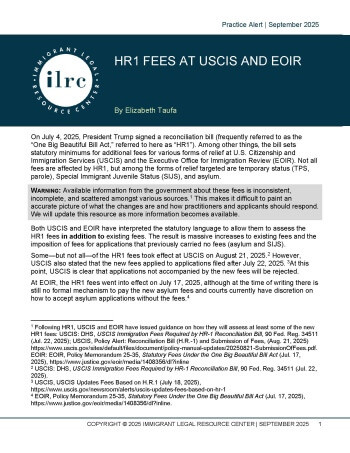
This practice advisory provides information about recently implemented fee increases at USCIS and EOIR. These fee increases are a result of the “One Big Beautiful Bill Act” also known as HR1. This advisory explores what we know and what we still don’t know about the fees, how to pay them, and potential future changes.
For many noncitizens, naturalization is the best defense against deportation from the United States. Indeed, USCIS lacks the authority to detain or deport a U.S. citizen. However, applying for naturalization can be risky for some individuals because it can instigate immigration enforcement. This concern has increased following President Trump’s February 28, 2025 NTA Memo. The ILRC, NIPNLG, CLINIC, and the Ready to Stay collaborative wrote a practice advisory summarizing the most common reasons why USCIS may deny an N-400, providing guidance for ways to screen and avoid an N-400 denial and removal proceedings, and discussing immigration relief options in immigration court.
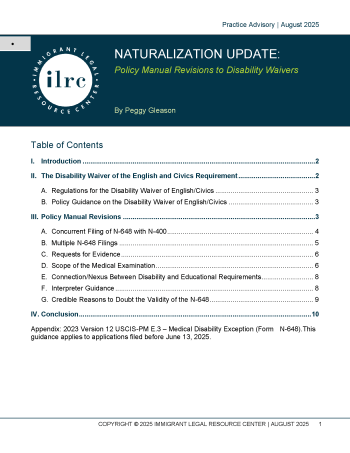
This practice advisory provides background on the disability waiver of the English and civics requirement for naturalization and describes the June 2025 revisions to the USCIS Policy Manual (PM) on the submission and review of disability waivers. The revised guidance in the PM applies to applications filed on or after the publication date of June 13, 2025. Overall, the PM revisions signal a change in tone that assumes fraud in the disability waiver process is frequent and encourages increased scrutiny by USCIS adjudicators.
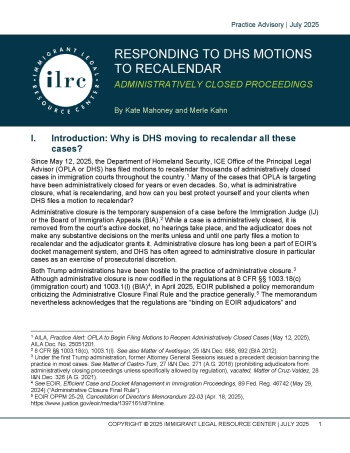
In recent months, the Department of Homeland Security has begun filing thousands of motions to recalendar administratively closed proceedings. This trend is raising questions about how attorneys and accredited representatives can respond to these motions and protect their clients’ interests, particularly in cases that have been administratively closed for many years. This advisory explores those questions and offers strategy considerations when determining how to proceed in each case.
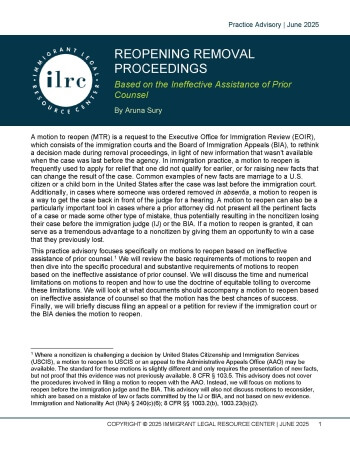
This practice advisory focuses on motions to reopen based on ineffective assistance of prior counsel. It reviews the basic requirements of motions to reopen and then dives into the specific procedural and substantive requirements of motions to reopen based on the ineffective assistance of prior counsel. It discusses the time and numerical limitations on motions to reopen and how to use the doctrine of equitable tolling to overcome these limitations. It also covers what documents should accompany a motion to reopen based on ineffective assistance of counsel so that the motion has the best chances of success. Finally, it briefly discusses the option of filing an appeal if the immigration court or the BIA denies the motion to reopen.